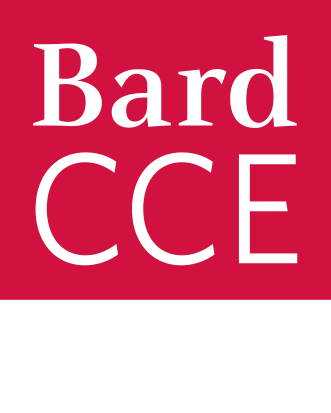Amnesty International Club: Catalyzing Conversations about Human Rights Violations
Anna Likhanova '26 is the head of the Bard chapter of the Amnesty International Club. Photo by Eve Ramseyer '26.
Smriddhi Nair ‘26 interviewed the head of Bard’s Amnesty International Club, Anna Likhanova '25, who explains how Amnesty International connects Bard with the larger community involved in protecting human rights across the globe.
SN: What is Amnesty International?
AL: Amnesty International is an non-governmental organization (NGO) that focuses on protecting human rights across the world through independent investigation and campaigns. It unites people across the globe in the fight for equal access to human rights for all.
SN: Amnesty International has a large network throughout the world. How does Bard work to connect with it?
AL: The club heads are connected with the Amnesty student group coordinators and are connected to the larger network across the United States. The Amnesty chapter here at Bard has participated in international campaigns such as Write for Rights, in which Amnesty members from all over the world write letters to either political prisoners to support them or governments to demand justice for those who are unlawfully detained.
SN: What is the goal of the club and how does it work to aid Bard’s community?
AL: The main purpose of Amnesty International at Bard is to catalyze conversations about human rights issues in the US and other countries. Amnesty @ Bard doesn’t just talk about human rights violations but also encourages the youth and faculty on campus to take action in a number of ways, including writing letters to the authorities demanding justice, signing petitions, organizing panels, among other things.
SN: What are the biggest challenges of leading Amnesty International and how do you work to overcome them?
AL: Leading such a club at Bard is tough in terms of recruitment. The attendance at club meetings is inconsistent. We try to communicate with everyone on our mailing list and ask for help on the events but it often ends up being a very small group of people. Another important aspect I often struggle with is being present. In the moment of turmoil, when taking action could mean so much, it is so difficult to find emotional strength to make this change happen. Community helps to overcome this difficulty. Seeing people caring about the same things as you and showing up at the darkest times is what gets us going. Knowing that you are not alone.
SN: What sort of events does Amnesty International put on?
AL: We organized a letter writing event, we held several trivia nights about women’s rights, banned books, and more. We also held a panel on immigrants’ rights. We facilitated the collection of humanitarian aid for Ukraine, and raised funds for people in Turkey and Syria after the earthquake.
SN: What change do you know Amnesty International can make through its existence?
AL: AI can promote taking action against human rights violations. It is so important to talk about those violations and we do a lot of this on campus. However I think there is still work that needs to be done regarding taking action. It would be great if the Amnesty club could help more people on campus learn how to practically fight injustice.
SN: How can Bard help to be a bigger part of Amnesty International?
AL: I can see it being helpful if professors of Human Rights or any other department would encourage their students who are interested in organizing to reach out to Amnesty club heads. More collaboration between faculty staff and the student body would go a long way.
Post Date: 03-07-2024
